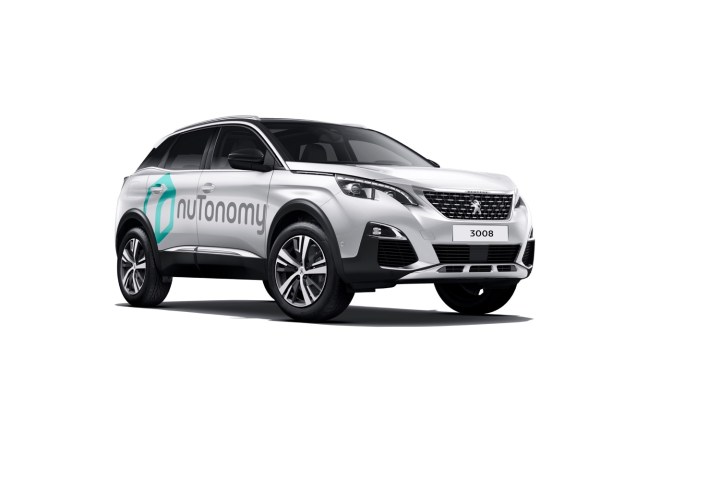
The company is partnering with PSA Peugeot Citroën to expand the Singapore test program. PSA will provide Peugeot 3008 SUVs for NuTonomy to outfit with its autonomous-driving hardware. Those cars will hit the streets of Singapore in September and from there, PSA and NuTonomy will evaluate other joint projects.
NuTonomy currently uses Renault Zoe and Mitsubishi i-MiEV electric cars to test its tech. But this is the startup’s first large-scale collaboration with an automaker, something that could prove useful to both parties. NuTonomy wants to build up its autonomous taxi service to a commercial scale and to do that, it will need lots of cars. PSA needs a partner with relevant experience to help it speed up development of autonomous cars, which the company now views as a priority.
The NuTonomy self-driving taxis hit the streets of Singapore in August 2016. Riders can hail them using a smartphone, although the service has been limited to Singapore’s 2.5-square-mile “one-north” district so far. The pilot program launched with six cars and a few dozen registered participants, but NuTonomy hopes to have a more substantial fleet ready for commercial service by 2018.
Since NuTonomy isn’t in the business of building cars, the partnership with PSA could be vital to that expansion. While some tech companies continue to market autonomous driving systems as stand-alone items, they face stiffer competition from automakers that can now integrate the technology directly into their own cars. If automakers can launch their own autonomous ride-sharing services, they may be able to undercut companies that need to purchase cars when it comes to cost.
Will NuTonomy ever bring its self-driving taxis to the U.S.? The company is already testing cars in Boston and recently announced an expansion of the testing program to a larger swath of the city. PSA is hinting at a return to the U.S. that might involve ridesharing. For now, though, expect the robot taxis to stay in Singapore.
Editors' Recommendations
- Volkswagen is launching its own self-driving car testing program in the U.S.
- Tesla issues stark warning to drivers using its Full Self-Driving mode
- New self-driving car algorithm keeps you safe by constantly predicting doom
- Waymo puts its self-driving cars back on Arizona roads as lockdown is eased
- New Apple self-driving car patent could turn Siri into your personal chauffeur


